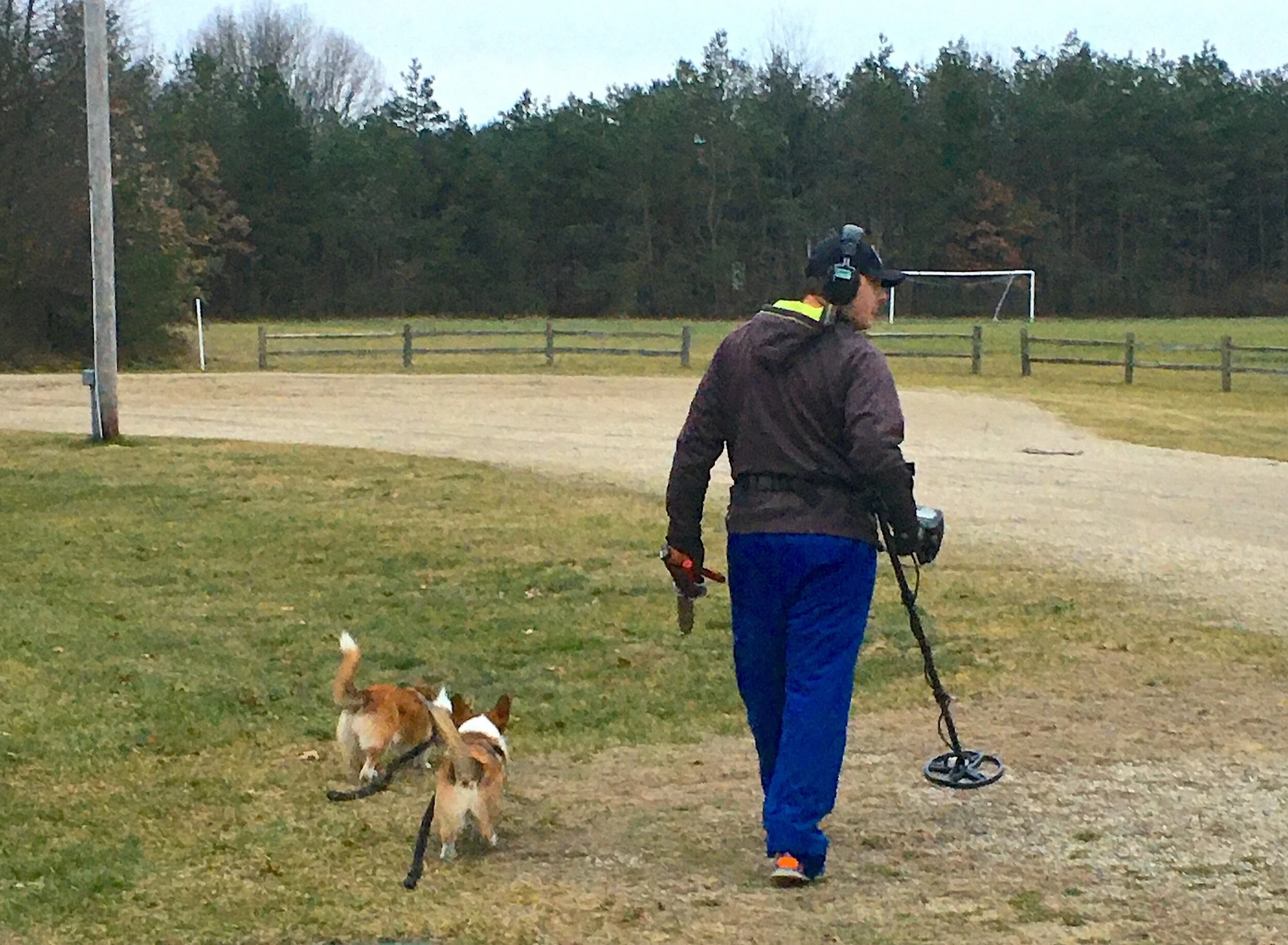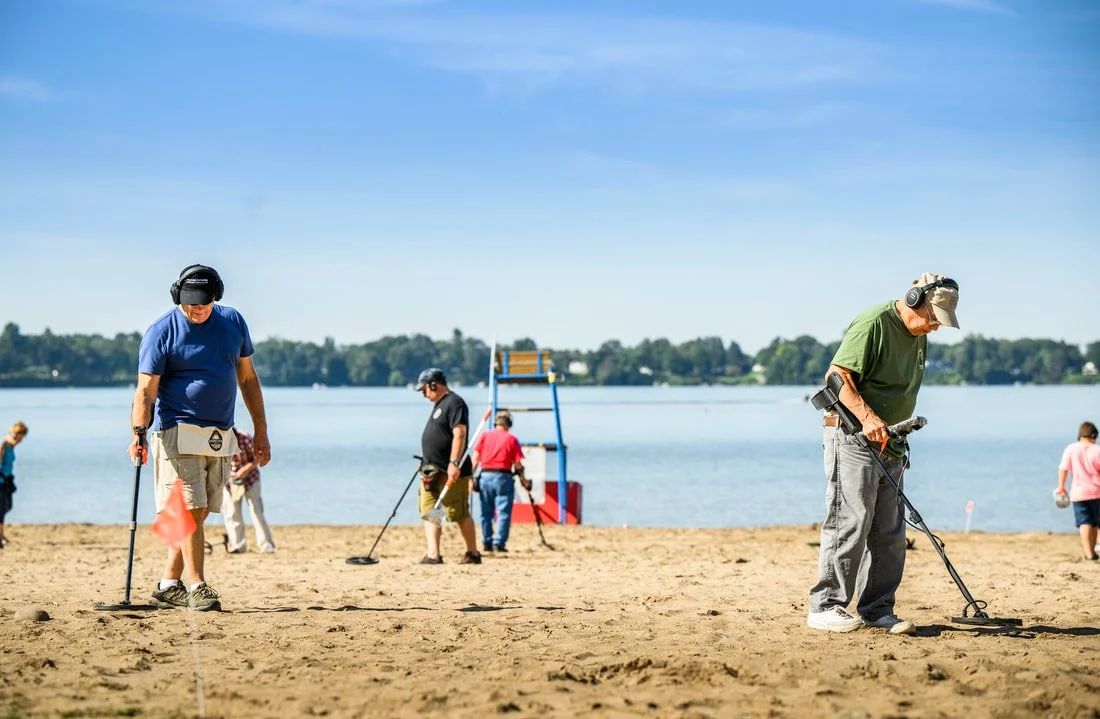Where Can I Metal Detect? A Beginner’s Guide
Where Can I Metal Detect?
When you first pick up a metal detector, the big question always comes to mind: "Where can I metal detect?" As someone who’s been swinging a detector for years, I’ve come to learn not just where to search, but also where you’re legally and ethically allowed to hunt.
A public park is usually a good option if you are seeking a place to go metal detecting. Photo credit: Ace Covey
Let me walk you through some of the best places to start your journey, the laws you need to know, and some places you should absolutely avoid.
**DISCLAIMER - As an Amazon Associate I earn from qualifying purchases. The links in the article are affiliate links that help support this blog and my channels. Metal Detecting Life is supported by you, the readers! When you purchase something I recommend via my links, I may get an affiliate commission (terms of service) — but it never affects the price you pay. Cheers!
Understanding the Legalities of Metal Detecting
Before we dive into specific locations, let’s talk about the rules. Metal detecting isn’t just about finding treasure; it’s about respecting the land and the laws that govern it.
Here are a few key things to consider:
Public Land vs. Private Land
Photo credit: Doctor Tinieblas - Unsplash
Public land often allows metal detecting, but there are exceptions. Always check local regulations, especially for state and national parks, as many have strict restrictions. On private land, you’ll need written permission from the owner.
Permits
Some locations, such as certain parks or beaches, require a permit for metal detecting. These are usually easy to obtain and worth the small fee.
Protected Areas
Historical sites, battlefields, and archaeological zones are off-limits. These areas are protected by law to preserve cultural heritage.
Leave No Trace
Always fill in your holes and take any trash you find. Being respectful ensures that metal detecting remains welcome in your favorite spots.
(insert Plug Blog Post)
Importance of Choosing Where to Metal Detect
If you’re new to the hobby, choosing the right location can make all the difference. Choosing the right location for metal detecting is crucial because it can significantly impact your success, enjoyment, and learning experience. Here's why:
Increased Finds
Beginner-friendly locations like parks or beaches are more likely to yield consistent and rewarding discoveries such as coins, jewelry, and other items. This boosts confidence and keeps you motivated to continue.
Easier Learning Curve
Locations with softer ground, like beaches, make it easier to practice digging and handling your equipment without facing physical challenges, such as rocky or root-filled terrain.
Legal Compliance
Starting in areas where detecting is explicitly allowed ensures you stay within the law and avoid fines or complications, making the hobby stress-free and enjoyable.
Fewer Obstacles
Wide-open, obstacle-free areas give beginners the space to explore and understand their detector's settings and signals without frustration.
Experience Building
The right location allows you to gain valuable experience reading signals, learning search patterns, and honing your skills in a supportive environment with a high chance of success.
Best Places to Start Metal Detecting
If you’re new to the hobby, choosing the right location can make all the difference. Here are some beginner-friendly spots to get you started:
Local Parks
Parks are often full of modern coins, jewelry, and other small treasures. Look near benches, picnic areas, and playgrounds.
A local park will provide for a great location to try your hand at metal detecting. Photo credit: Ace Covey
Beaches
Beaches are a favorite among detectorists. The shifting sand reveals fresh finds every day, especially after a busy weekend.
School Yards
Old school grounds are a great place to find coins, toys, and the occasional piece of jewelry. I just would not recommend going during school hours.
Fairgrounds
These places have seen decades of foot traffic, making them a hotspot for all kinds of dropped items.
The majority of fair grounds are on county/public land and may allow for metal detecting.
Sports Fields
Sidelines and spectator areas are great for finding dropped coins and small personal items.
Metal Detecting Beyond the U.S.
Yes, you can metal detect outside of the United States, but rules vary greatly from one country to another. For example:
United Kingdom: The UK is metal detecting heaven, but you’ll need permission from landowners and may need to report significant finds through the Portable Antiquities Scheme.
Australia: A gold prospector’s dream! Many areas allow metal detecting, but you may need a Miner’s Right license.
Europe: Many countries have strict rules about detecting, especially in historical areas. Always research local laws.
Beaches Worldwide: Many tourist beaches welcome metal detecting, but it’s wise to check local regulations.
Places You Should NEVER Metal Detect
Photo Credit: Dan Meyers - Unsplash
Knowing where not to detect is just as important as knowing where to go. Avoid these areas unless you have explicit permission:
National Parks and Monuments: These are protected by federal law.
Historic Sites and Battlefields: Digging here can lead to heavy fines or even jail time.
Private Property Without Permission: Always get the landowner’s okay before detecting.
Cemeteries: It’s not only illegal in most places but also highly disrespectful.
Wildlife Preserves: These areas are protected to maintain natural habitats.
The Best Place to Start as a Beginner
One of my favorite locations to metal detect is the beach. Photo Credit: Nancy Ford - EARTH Metal Detecting Club
If you’ve never metal detected before, I recommend starting at a local beach. Here’s why:
Easy Digging
Sand is much easier to dig than soil, which is perfect for learning how to use your detector and practicing your digging technique without much effort.
Consistent Finds
Beaches see a lot of foot traffic, which means a steady supply of coins, jewelry, and other lost items. This provides a rewarding experience and builds confidence as you begin to understand your machine’s signals.
Tidal Shifts
The constant movement of water and sand means that new items are always being uncovered, offering fresh opportunities every day. Storms can also unearth deeper treasures.
Wide Open Spaces
Beaches provide plenty of room to explore without worrying about obstacles like tree roots or dense ground cover, making it less frustrating for beginners.
Relaxing Environment
Let’s face it—metal detecting at the beach is simply enjoyable. The sound of waves, the fresh air, and the chance to find something valuable all combine to make it an ideal starting point for any beginner.
So grab your detector, head to the nearest beach, and start swinging. With every beep, you’ll be one step closer to finding your first treasure—and there’s nothing quite like that feeling!
In Summary
Metal detecting is a rewarding hobby that combines adventure, history, and the thrill of discovery. By understanding the legalities and starting in beginner-friendly locations like parks or beaches, you’ll set yourself up for success.
Remember to always respect the land and follow the rules to ensure that this fantastic hobby remains accessible for years to come. Whether you’re searching locally or exploring opportunities abroad, metal detecting offers endless opportunities to uncover hidden treasures and create lasting memories.
“So go out there and remember to “Swing4TheRing!””


















